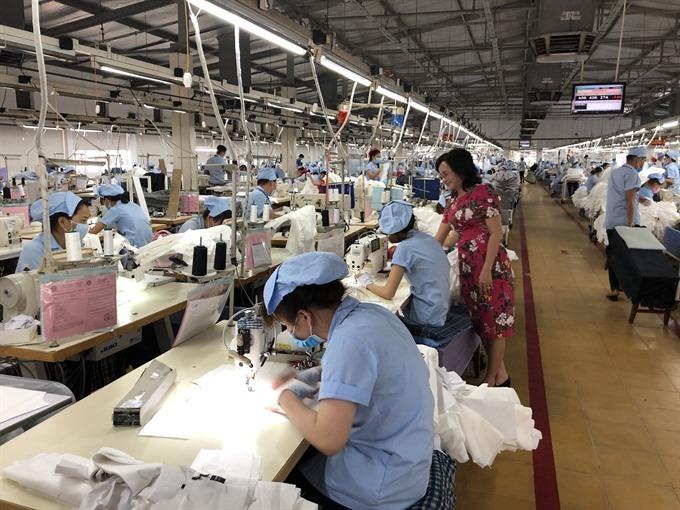Phan Thi Nhieu has spent a decade assembling shoes for worldwide brands such as Timberland and K-Swiss, but she is now among tens of thousands of Vietnamese factory workers laid off as Western consumers cut spending. Almost half a million others have been forced to work fewer hours as orders fall in the South-East Asian country, one of the world’s largest exporters of clothing, footwear and furniture.
The cost-of-living crisis in Europe and the United States — major markets for Vietnamese-produced goods — has seen the buying power of Western shoppers plunge. Women factory workers, who make up 80 per cent of the labour force in Vietnam’s garment industry, have been hit the hardest by the knock-on effect.
Since September, more than 1,200 companies — mostly foreign businesses in the garment, footwear and furniture sectors — have been forced to sack staff or cut working hours, according to the Vietnam General Confederation of Labour. Compared with last year, orders are down 30-40 per cent from the United States and 60 per cent from Europe, where inflation and energy bills have soared because of the war in Ukraine. More than 470,000 workers have had their hours slashed in the last four months of the year while about 40,000 people have lost their jobs — 30,000 of them women aged 35 or older, the confederation said. Taiwanese giant Pouyuen, a Nike shoe producer, has put 20,000 of its workers on paid leave in rotation, while reports said Vietnam’s largest foreign investor, Samsung Electronics, has started reducing its smartphone production at factories in the north.
The situation is bleaker than during the Covid-19 pandemic, say workers, who were helped out with food donations when strict quarantine measures forced them to stay home — and were quickly in demand again once restrictions lifted at the end of 2021. The slowdown has come as a shock because export businesses in Vietnam were running at “their fullest capacity” for the first half of 2022, according to Tran Viet Anh, deputy head of Ho Chi Minh City’s Business Association. “At the start of the third quarter, due to global inflation, consumption demands have shrunk, leading to the suspension of orders… and huge stock surplus,” he told AFP.
AFP





















